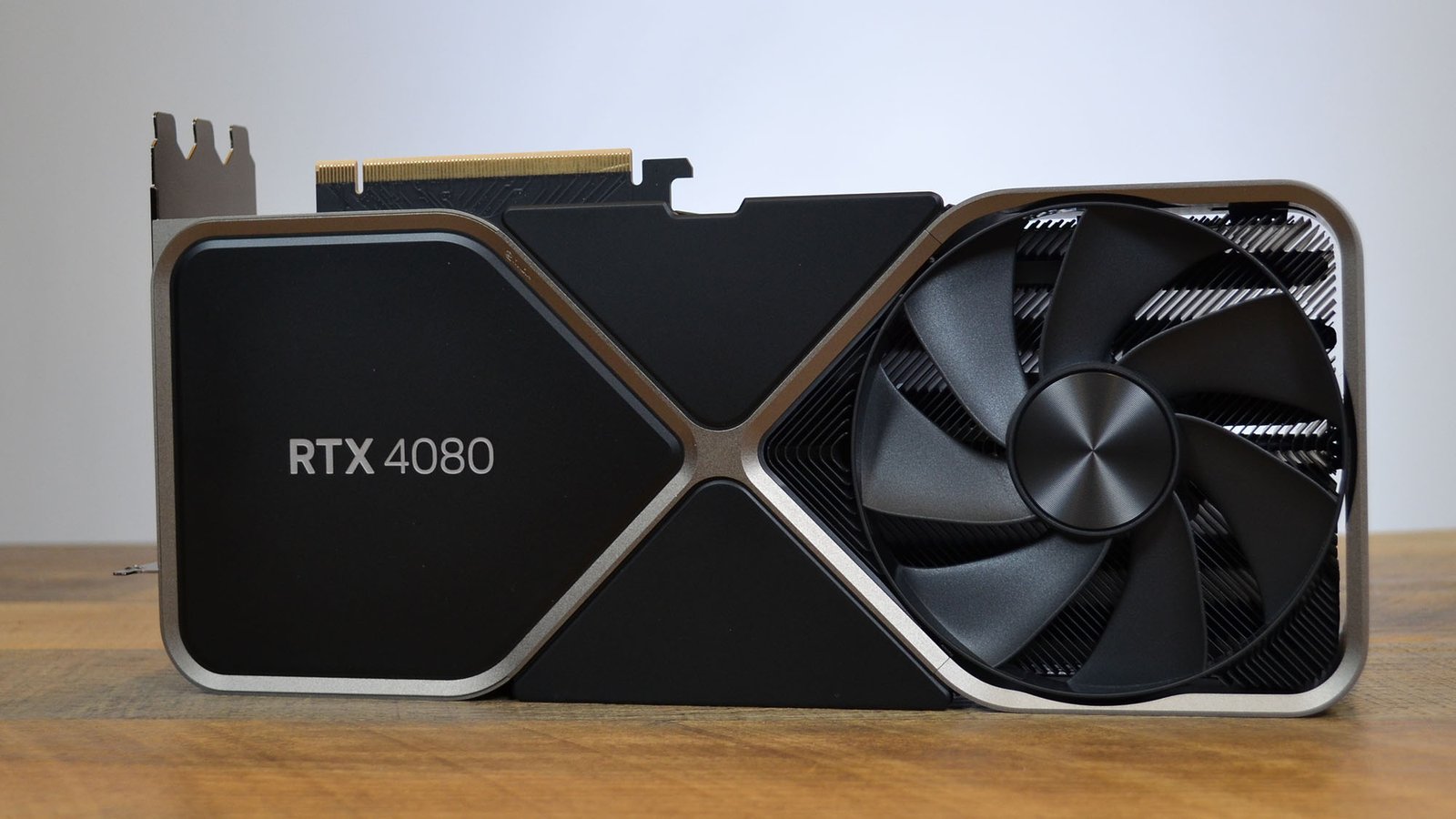Nvidia’s RTX 4080 is purportedly getting a new spin on the GPU which could reduce the cost, but any price reduction will likely be very minor, sadly, if it happens at all.
Tom’s Hardware (opens in new tab) flagged up this rumor – and treat it with caution, as with anything from the ever-spinning mill – that originated from HKEPC (opens in new tab) (a tech site in Hong Kong), claiming that while the current RTX 4080 graphics card is built on the AD103-300 chip, Nvidia is going to use a slightly different GPU in the future, namely AD103-301.
There’s now more evidence this is actually happening, Tom’s points out, courtesy of a graphics card maker, Galax, which under its RTX 4080 product details lists the GPU as ‘AD103-300/301’.
Furthermore, VideoCardz (opens in new tab)which also picked up on this, informs us that Gainward, another card maker, has also listed the updated GPU variant AD103-301 in its product specs.
With two separate third-party graphics card makers mentioning this new spin on the GPU in their specs, it seems pretty likely this is actually happening; but of course it remains to be confirmed by Nvidia.
HKEPC makes a further claim that the inbound RTX 4070 (the vanilla version of the RTX 4070 Tiwhich has just been unleashed) might also take the approach of having two different chips, which in this case would theoretically be AD104-250 and AD104-251. The difference is the former supposedly uses a comparator circuit, but the latter doesn’t, and would use a different circuit board, potentially lowering the cost of making the card.
The same is true of the RTX 4080 and new AD103-301, with it potentially lowering the cost of building it (the BOM or bill of materials as it’s known in the industry). The key question is, if all this pans out for both or either GPUs, how much cheaper might the second variants actually be?
Analysis: Will this mean cheaper graphics cards – or is that a false hope?
HKEPC reckons that the cost gap between the supposed different versions of the RTX 4070 could be as little as $1 in terms of the bill of materials, which is clearly a tiny amount, and likely wouldn’t make a jot of difference to the price that the consumer pays. A source that VideoCardz tapped also claims that any cost difference wouldn’t be significant.
We aren’t given any figure for the potential difference in the cost of making the RTX 4080 versions, but the new AD103-301 might lower the bill to a greater extent, and perhaps mean the graphics card does get cheaper for the consumer. However, it might be a similarly very minor reduction in the BOM, which would doubtless do little to affect the price of the second spin on the RTX 4080.
Time will tell, but given Nvidia’s stance on pricing with Lovelace GPUs overall, it’s hard to be at all optimistic.
Another question is given the change to the RTX 4080 chip, would this affect performance? The rumor mill is pretty clear in its assertion that it wouldn’t, and the AD103-301 chip will not be any more performant than the existing AD103-300. That makes sense as Nvidia would presumably be wary of dropping a dose of buyer’s remorse on those who’ve already forked out for an RTX 4080, and splashed a large wedge of cash to do so.
The overall upshot of this is likely to be graphics cards with the same performance level – or so similar as to be negligible – and slight savings for the board makers, that likely won’t be passed on to consumers. Hopefully a more favorable situation could pan out, though, cost-wise, so keep your fingers crossed if you’re in the market for a high-end GPU.







